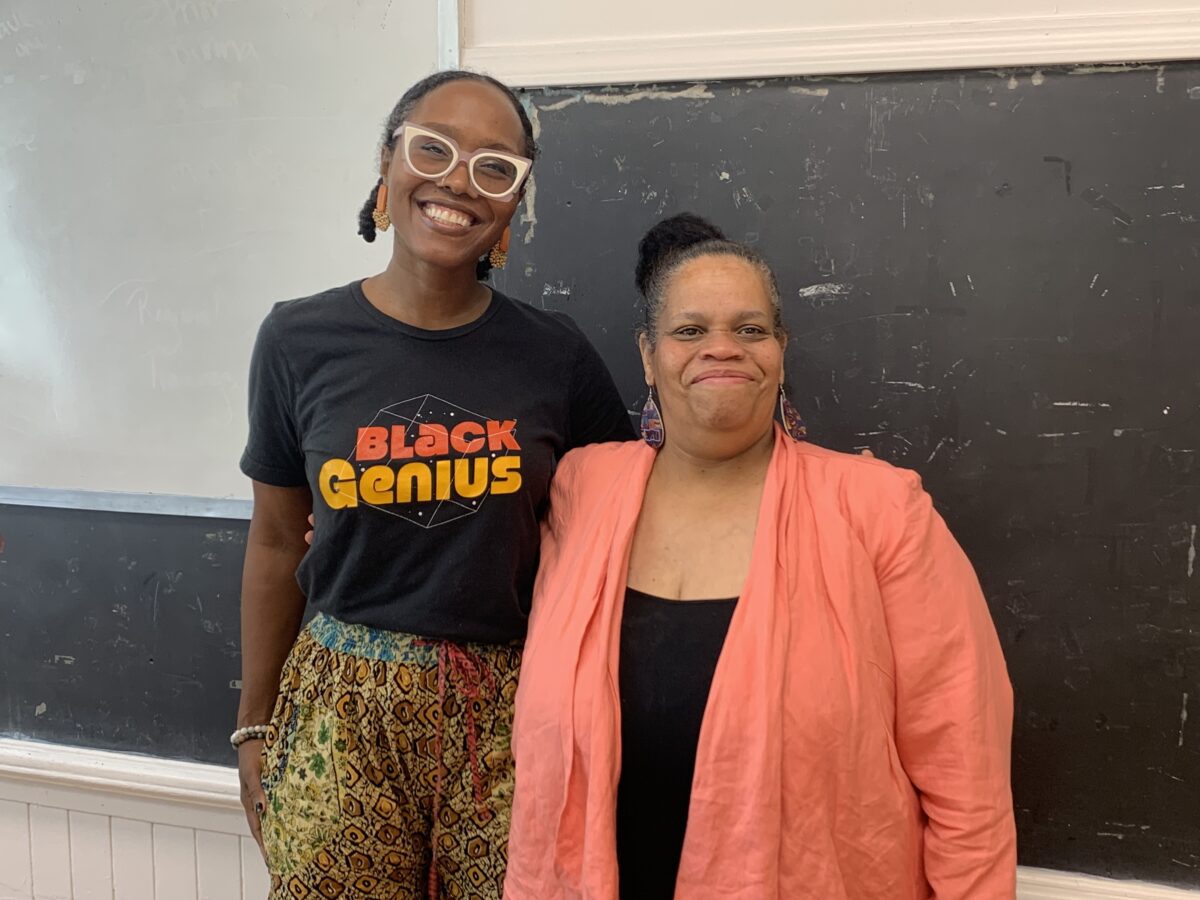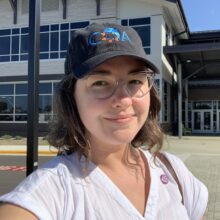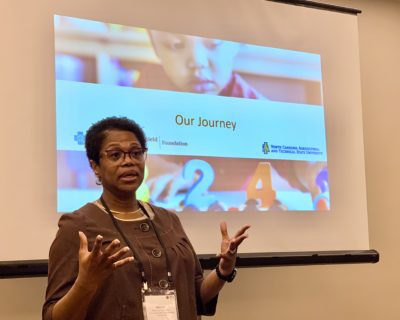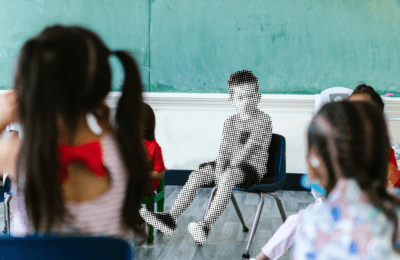

|
|
Village of Wisdom (VoW) has been working to eliminate racial injustice in schools since 2014. Now they’re bringing their “Black Genius” framework to pre-K in an effort to halt the use of exclusionary discipline in early childhood education.
Evidence shows that Black children are disproportionately subjected to exclusion, suspension, and expulsion in preschool — often for behavior that’s developmentally appropriate for their age.
“My vision is that we stop penalizing children for being children,” said Roxann Dixon, manager of early childhood education initiatives at VoW.
‘Causing harm in a little person’
Exclusionary discipline is any form of disciplinary action that removes a child from their learning environment. It includes transferring a child to the care of another teacher, sending them home for the rest of the day, or telling their family they’re no longer welcome in a particular early care and education setting.
This form of educational disruption is not limited to the hours, days, or weeks immediately following the exclusion. It has been shown to have lifelong effects, including lower performance at school and increased risk of incarceration — also known as the preschool-to-prison pipeline.
There’s also no evidence that exclusionary discipline helps support the development of children who experience it, or their classmates.
“You think by removing them, you’ve eliminated the problem,” Dixon said. “But what you did was cause harm in a little person, because now their social-emotional growth may be stunted, now they have feelings of rejection, now they’re feeling that they don’t belong.”
Black children consistently have the highest rates of exposure to exclusionary discipline compared with other racial and ethnic groups, which is why VoW has chosen to move their work into pre-K settings.
“Children are just small people, with feelings, with thoughts, with needs,” Dixon said. “And they are sometimes very well able to articulate those, but sometimes they’re not.”
It’s when they’re not that Dixon sees an opportunity for parents and educators to develop relationships that protect “Black Genius.”
VoW’s Black Genius framework
According to Dawn X. Henderson, director of research and power building at VoW, “Village of Wisdom is an organization that collectively organizes Black families, parents and caregivers around protecting Black Genius.”
The Black Genius framework is the foundation of VoW’s work. It includes six elements designed to help teachers and families appropriately support Black learners by seeing them as bringing a variety of assets to the classroom, rather than deficits that must be overcome.
“The Black genius framework is organized in a way to create the learning conditions to support the social-emotional learning or positive development of Black learners,” Henderson said.
“Historically, much of our work has been primarily in middle and high schools,” Henderson said. “But this is an opportunity to really start the work at the root, to go even earlier when we’re talking about protecting Black genius, and doing it in a very intentional way.”
Regardless of the age of students, VoW’s overall strategy remains the same.
“We’re trying to shift the way educators are looking at Black learners,” Henderson said. “And knowing that part of that shift has to happen with a partner — and that partner is the Black parent or caregiver.”
Protecting Black Genius from exclusionary discipline
To introduce the Black Genius framework in early childhood, VoW is starting with parents of pre-K students affiliated with Durham Children’s Initiative (DCI) and Lakewood Elementary School.
Dixon is initially spending time in their environments, becoming a “familiar face” to parents, educators, and students. Soon she’ll begin conducting listening sessions with parents.
“Parents know everything about their child,” Dixon said. “So why don’t you go to the subject matter expert and get all the information you can?”
Parents will complete VoW’s “Dreams Assessment,” which Henderson explained “is a radical reframing of a needs assessment framed around: What are the dreams and aspirations you have for Black learners?”
That’s when the Black Genius framework can be introduced.
As Henderson put it, “This is the dream that you articulated, and this is how we believe we can manifest that dream.”
Helping parents adopt a Black Genius framework for their children is just the first step.
“The second step is to help the educator understand that the child is not the problem,” Dixon said. “The problem is maybe you lack resources, maybe you lack relational opportunities that you missed.”
Dixon knows from experience that when teachers take advantage of the opportunity to build relationships with parents, they’re better able to support students in the moments when they’re at greatest risk of facing exclusionary discipline.
“You have to have a relationship with the parent, because the parent is the first teacher that this child has ever experienced,” Dixon said.





